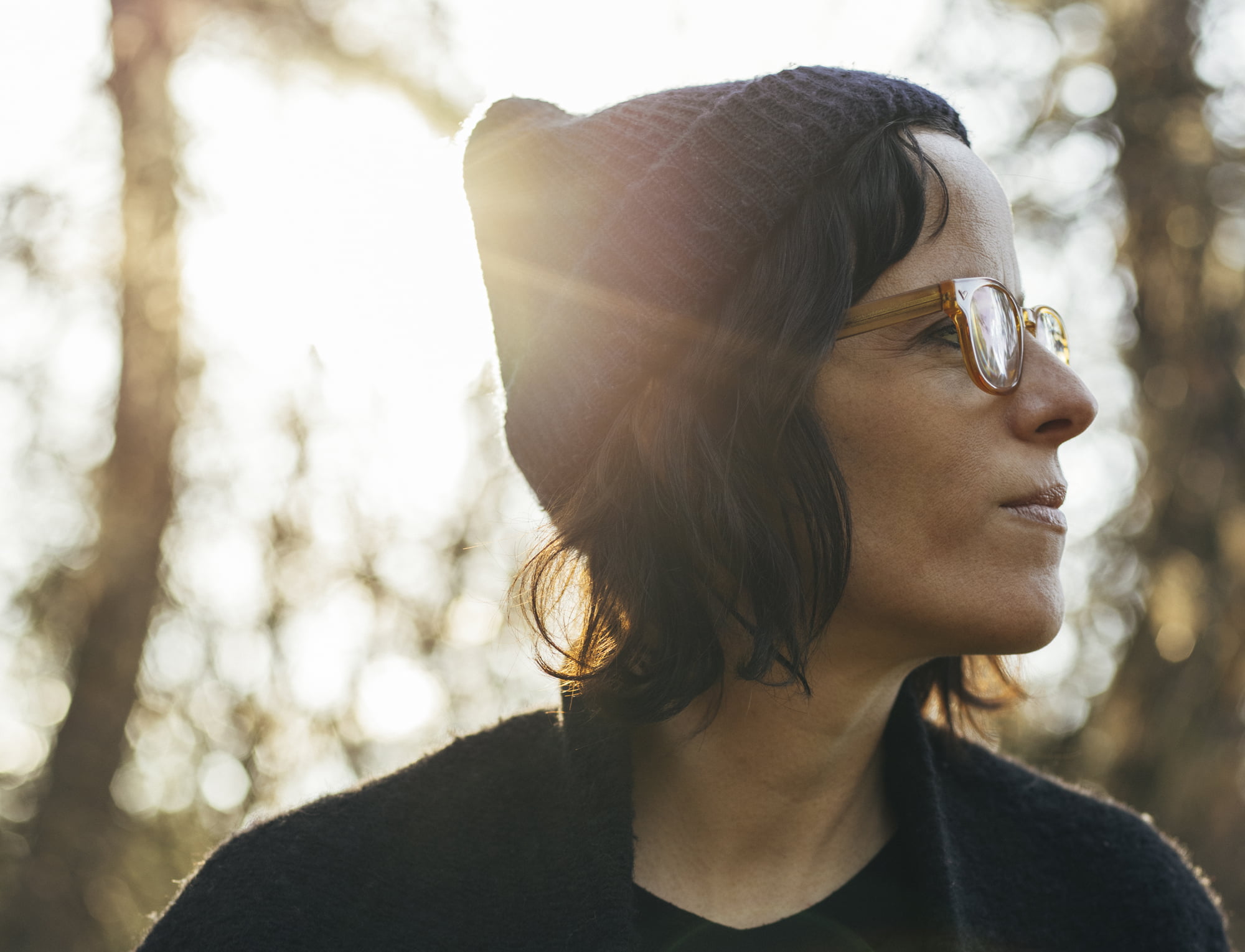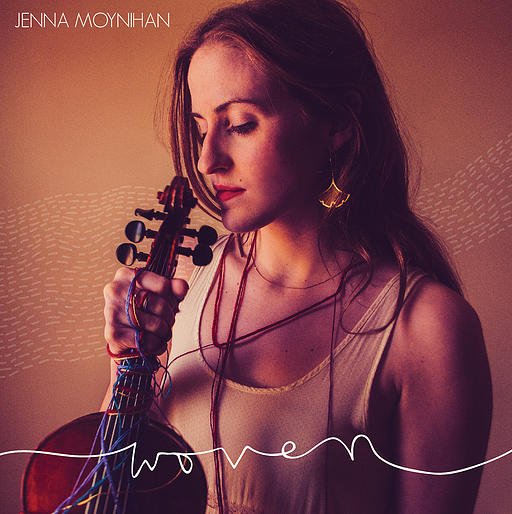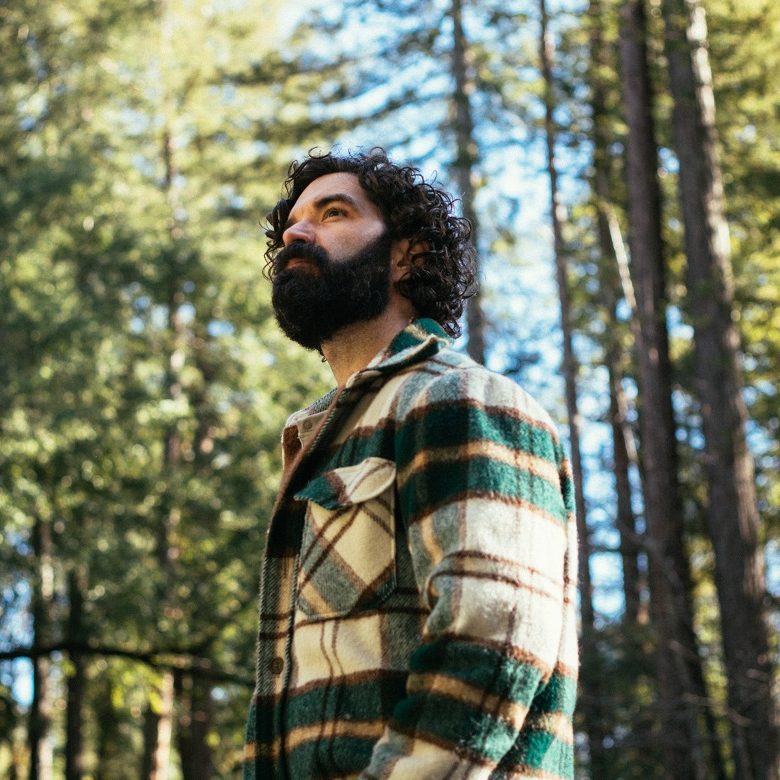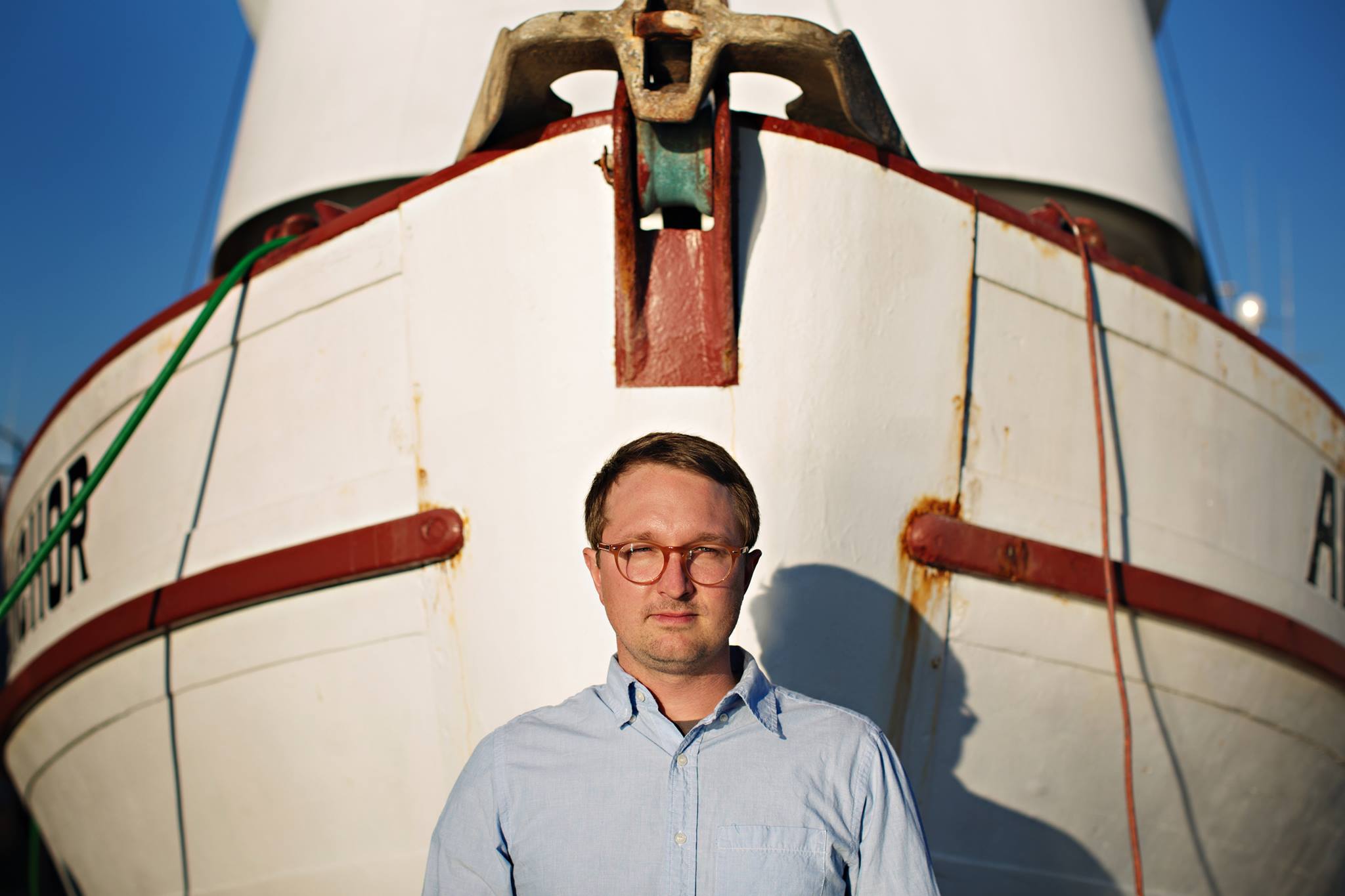There often seem to be seasons in life, when one thing after another takes our breath away — and not always in a pleasant way. Singer/songwriter Sera Cahoone has been experiencing just such a time for the past few years. From losing her cousin to getting engaged to breaking that off to losing one of her best friends, Cahoone has taken a quite a licking over the past few years. But her new album, From Where I Started, proves that she is very much still ticking, and beautifully so.
The 11-song cycle finds her returning to her DIY musical roots, after releasing three albums via Sub Pop and servng as a drummer with Band of Horses and Carissa’s Wierd. It also finds her parsing what it means to be alive, through heartache and hope … emotions that are infinite, unforeseen, and always in season, no matter who you are.
You were warned on Twitter about this first question: Where have you been all my life?
[Laughs] I love that!
Seriously, how have we not crossed paths? I mean, all things considered. I’m in the center of your Venn diagram demographics.
Yeah. Yeah. I don’t know. This is my fourth record and they are all pretty Americana-y.
Part of it is that I never kept up with Band of Horses, even though Bill [Reynolds] and I lived in Ojai at the same time.
Oh, nice! Bill’s awesome. I don’t know. I didn’t really know what I was doing when I released my first record. I had a lot of friends help. And I ended up on Sub Pop, which was amazing, but I didn’t really know that I should be in this vein or anything.
You do play the banjo …
Yeah. Exactly. It’s just been a huge learning process. Now, I’m 41, and it’s like, “OH!” It’s just been a whirlwind. I guess I was just doing the things I thought I should be doing, but maybe not playing for the right people a lot of the time.
Well, this record is everything I want a record to sound like, if that makes sense … just enough banjo, some cool drum grooves, great songs … tastefully hitting all my sweet spots, if you will.
Well, thank you.
That being said, the framing of it, title included, seems to indicate that it’s something of a departure from your previous records. I don’t hear it that way, though. If anything, it’s just an evolution or a refinement.
Well, my very first, self-titled record, I did on my own. I played all the drums and found musicians to piece it together. I didn’t quite know what I was doing. It all just fell together in a really quick way. I think we recorded it in four days. Then I started to get a band, so the next two were with a band, but I still played some drums. But, this record … I had been touring a lot solo or duo, and I was not feeling like I was in a band anymore. At home, I do demos and I know what I want. I record the guitar, then I’ll put a drum thing to it and build it into a song.
I met this guy, John Askew, in Portland, and we just vibed. We did a demo session — I did three songs with him. He brought in this piano guy named Rob Burger who totally blew my mind. I was like, “O-kay! He’s the one!” [Laughs] He just made a totally different sound than I was used to because I’ve had a lot of the same people play on my records. So I knew I wanted the piano and the fiddle to be more of the main focus. I just kind of pieced this thing together, and I did bring in Jeff Fielder and Jason Kardong, who played on my other records. It was just fun. I wanted to keep it as my thing and not worry about anything else.
You were a drummer first, right?
Yeah.
What does having that percussive foundation in your bones add to your guitar and banjo playing?
I think it does a lot. I’m not that great of a guitar player. I’m playing chords, and it sometimes has a rhythm to it that I instantly know I want this or that kind of drumbeat to it. But my playing is very rhythmic, so it always goes back to that.
And how do those melodic aspects, as a singer and player, inform your drumming? Are you keyed in more?
Yeah. I’ve learned a lot, just being a drummer. I feel like, at first, I was like, “It’s about me! It’s about the drums!” [Laughs] And, now … I played with my good friend Patrick Park and I learned a lot from him, that the most simple drums are the best. I’m super-sensitive to the song.
Serving the song … I always love that approach.
Yeah.
I’m a fan-TAS-tic air drummer, though very mediocre on an actual kit. But I know enough that, if I can air hit every fill and crash on my first listen through a song, I think, “Go away.” [Laughs]
[Laughs] Yeah! Totally.
I love to be surprised where I think, “Hang on … what happened just then?”
Totally. Totally. Exactly. Mick Fleetwood is one of my favorite drummers and he’s not Mr. Showy at all. He’s so tasteful.
I love Matt Chamberlain. Just his inventiveness.
I love him! He’s amazing.
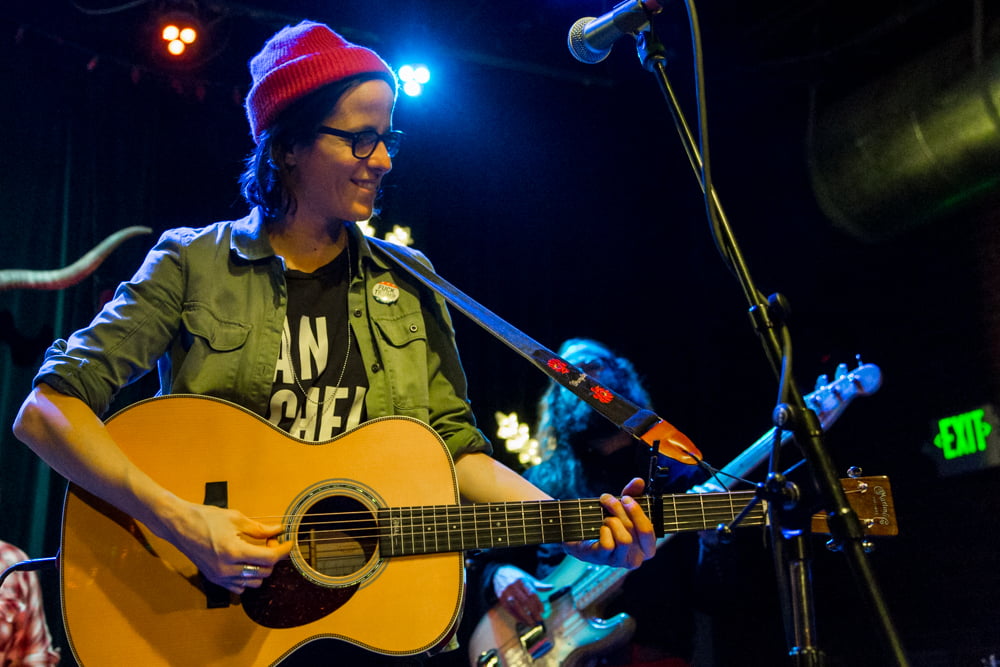
Okay. Songs. “Rest my head on the collar of your favorite shirt …” in “Better Woman” … there’s something so soothing about that line to me. The specificity of it evokes intimacy and avoids cliché.
Thanks. [Laughs]
This is a topic I’ve discussed with a couple of other artists lately — the idea that there are so many different ways to say “I love you” because there are so many different experiences of love.
Right. Yeah.
There’s no question in there. [Laughs] But, if you have any thoughts on that …
I understand what you’re saying. I feel like that’s something I try to be aware of. It’s maybe not intentional all the time, but I try not to be too over-the-top cliché.
Or even too saccharin. But the bigger lesson embedded within that tune is of being a better version of yourself, the best version, if you can. Is that something you’re actively trying to put into practice? And have you found it to be not as scary as it might seem?
Yeah. I’ve had a lot of life lessons, especially the last four or five years of my life. Life is really short and throws shit at you. Good stuff, too. You have to keep yourself at a higher level and make sure you’re being the best you can be.
The surrender of “Up to Me” is certainly a part of it. I feel like those are related. You have to have some detachment about it all.
That was a funny song. I wrote that … there’s a thing up on Whidbey Island called Hedgebrook which is a women’s retreat. They have six cabins and, usually, it’s female novelists. But they do a singer/songwriter thing for a week or two. So I went there and wrote that song in five hours, which is really weird because it takes me a really long time to write songs.
Why the long marination?
I get distracted. Then I get bored of it. And I think it sounds stupid. I think it’s mostly that I get distracted. I’m one of those …
So it’s more ADHD than contemplation? [Laughs]
[Laughs] Definitely.
“Hey! There’s a shiny new melody over there!”
Yeah. Totally. I had “Better Woman,” or a lot of it, a really long time ago. I didn’t have the words. I just had this song that was there and never finished it. So I do that a lot.
That song and “Tables Turned” share a theme of self-doubt — or maybe it’s just self-awareness. Whether songs like that are confessional or conceptual, the singer is always the blank screen upon which the story is projected. People are going to assume it’s about you, whether it is or not. So what’s your process for deciding how much to reveal or portray?
I’m a pretty private person. In my songwriting, I can reveal it. A lot of this record is very much me.
Was that scary?
Yeah. It always is. Because you just feel so vulnerable. But I don’t know what else I’d be doing. [Laughs]
[Laughs] Writing a bunch of “oh baby, baby” songs …
Yeah, I mean, I could … but then …
What’s easier to write, happy in love or heartbroken in loss?
Definitely heartbroken in loss.
Really?
Yeah, I don’t usually write happy songs. It’s not easy for me.
I’ve had this conversation with Brandi Carlile about how, when she got married and happy and had a kid, she didn’t think she’d be able to write. Then Tim [Hanseroth] told her you can do everything better when you’re happy — even write sad songs. Do you believe that?
I do. I’ve been really happy and written some really depressing songs. [Laughs] I love writing sad songs, even if it’s nothing that’s happening in my life. I like sadness in music, in general. Sometimes too-happy stuff feels a little weird.
We need those, too, but save them for the “oh baby, baby” people.
[Laughs] Exactly.
So, when you have gone through a seismic life shift, as you have, and it’s still sort of fresh, and you have songs representing both sides of the divide, how do you find your way into the performance of them without losing your shit?
Well, yeah, that’s been hard. But they are songs I love, so I’m not gonna not sing these songs because of that. You just have to try and make them take on a new direction and a new life.
I was going to ask that, too: As you carry on with life, do your songs attach themselves to new meanings?
Yeah, I just love singing them live. Some are harder than others. But they take on new meanings.
Public therapy.
[Laughs] Yeah. Totally.
It has to be pretty cathartic. As each layer sheds, it’s like, “Okay, that line doesn’t hit me in the same way anymore. Cool.”
It really is. Yeah. That’s exactly it. That’s nice when that happens. It’s pretty rare. I did a West Coast thing in October and I actually came to AmericanaFest, when things were really … fresh. So that was really hard. But you gotta do it. The last six months have been really challenging and hard. I just lost one of my best friends a couple of months ago. It was really awful. It’s like you’re up on this and then this happens. It’s just been like, “MAN!” It’s so nice playing music and I’m happy that my record is coming out. It’s just … it’s been a ride. It’s just what you do, I guess.
Any time someone tells me a story like that, I flash on Tig Notaro’s bit about, “Oooooh, she can handle a little bit more!” [Laughs]
[Laughs] I know! Right? Totally. So true. “Here’s some more!”
Life comes at you fast.
I feel like I’ve learned a lot. Or, at least, I like to think I have. And, it’s not a new look on life, but it feels so short to me.
It’s our 40s.
It’s so weird. There’s so much bullshit. It’s so exhausting. Now, I’m trying to … I get a little too much in my head still, but I’ve just learned a lot. And I’m trying to not do that to myself.
Photo credits: Kyle Johnson & Stephanie Dore
